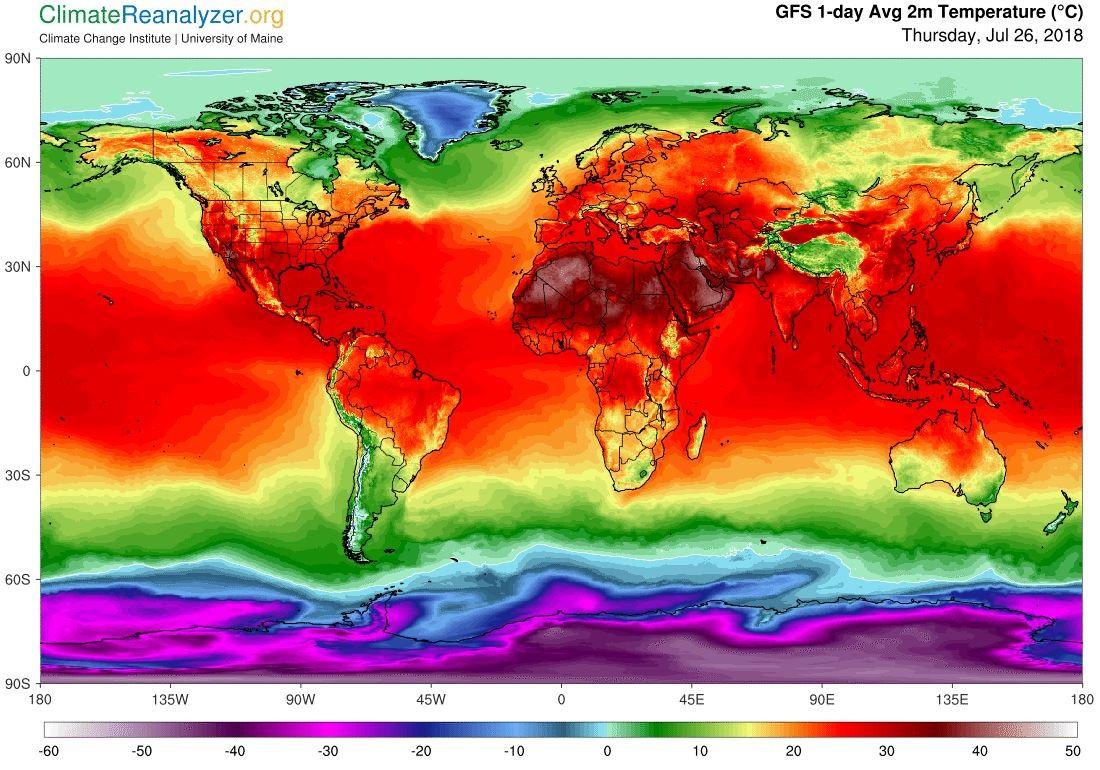As New Zealand prepares for a potential late-winter polar blast, the northern part of the world is baking in a heatwave that's starting forest fires as far north as the Arctic Circle.
The northern hemisphere's brutal summer has claimed lives in Japan, South Korea and Canada, and wildfires linked to the increasingly warm climate have killed dozens more in Greece.
In Oman earlier this week, the overnight low was a sweltering 42.6degC - hotter than the hottest daytime temperature ever recorded in New Zealand.
Global maps produced by climate scientists at the University of Maine and the University of Reading are covered in swathes of burnt orange and red.


Some show not just that it's hot, but how much hotter it is than normal this New Zealand winter.


There isn't a speck of blue - below average temperatures - anywhere near New Zealand and Australia, and there are parts of Antarctica more than 10degC warmer than the 1979-2000 average.
Meteorologist Simon Lee of the University of Reading said while the UK heatwave of 1976 was largely isolated to the British Isles, at present it's "just another warm blob in a mostly warmer than normal world".
Alongside a graph showing temperature anomalies since the late 1800s, he called it "fundamentally undeniable" proof the world has been warming.
Though climate scientists are reluctant to blame global warming for specific events - such as the deadly fires in Greece or individual heatwaves around the world - Mr Lee says it makes such events much more likely.
"Imagine a loaded dice," he tweeted. "You throw a 6. But you could have thrown a 6 on a normal dice, too, so you can't be sure you threw a 6 because the dice was loaded - but it vastly increased your chances of doing so. The same logic applies to heatwaves and global warming."
The UK Met Office issued a warning earlier this week for Britons to stay out of the sun. The warning is scheduled to end Friday night (local time).
The hottest day in UK history happened in 2003, when it reached 36.4degC.
WeatherWatch.co.nz says there could be wave of cold air coming up from Antarctica in the coming week, but it's likely to be followed by the relatively mild temperatures New Zealand has enjoyed this winter.
"Either way, welcome to the month of August - one of the most unpredictable months of the year," the forecaster wrote on Friday.
2017 was the second-hottest year for the globe on record, just behind 2016. The 2016-17 summer was New Zealand's hottest on record, 2.3degC above the long-term average.
- Sea temperatures rise across New Zealand after marine heatwave
- Sea levels will rise a metre even if climate goals met - scientists
Newshub.
